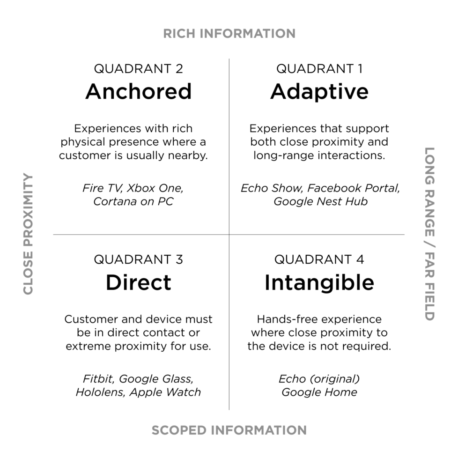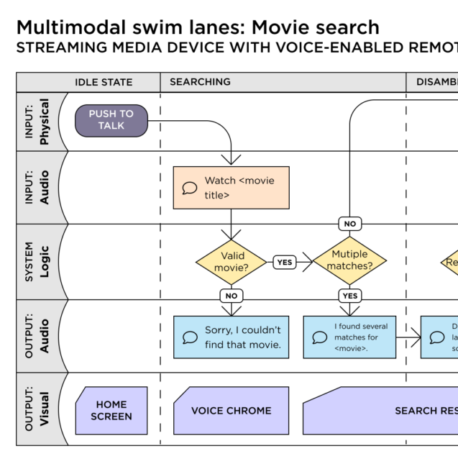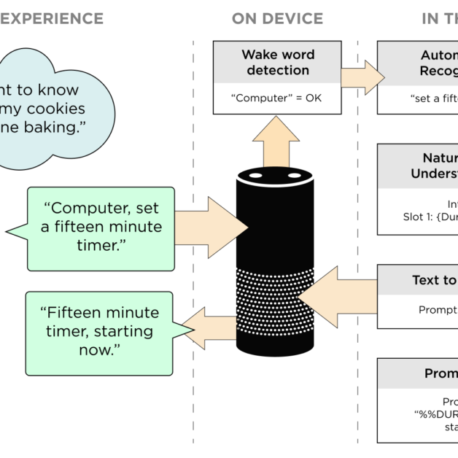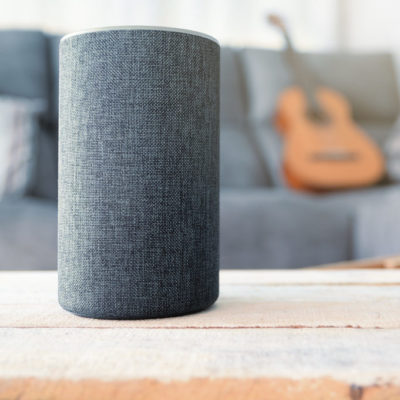Cheryl Platz is a technology, interaction design, and creative writer whose work has been featured in Forbes, the Huffington Post, on the Medium homepage, in multiple Medium publications including Microsoft Design, Prototypr, and uxdesign.cc, and in her first book Design Beyond Devices: Creating Multimodal, Cross-Device Experiences. She’s also been interviewed as an expert in artificial intelligence, design, and technology and cited by organizations including Wired and the BBC.
Contact Cheryl via email for writing or interview inquiries.




Design Beyond Devices: Creating Multimodal, Cross-Device Experiences
by Cheryl Platz
Foreword by Erika Hall
Your customer has five senses and a small universe of devices. Why aren’t you designing for all of them? Go beyond screens, keyboards, and touchscreens by letting your customer’s humanity drive the experience—not a specific device or input type. Learn the techniques you’ll need to build fluid, adaptive experiences for multiple inputs, multiple outputs, and multiple devices.
This bestselling and groundbreaking design book is available in digital and print from publisher Rosenfeld Media and all major online booksellers.
CHECK OUT REVIEWS ON Goodreads
This book is for…
- Designers, Product Managers, and Engineers
- Teams working on cross-device experiences: mobile + web, watch + mobile, etc.
- Designers and developers working with new technologies (AI, AR, VR, voice UI, etc.)
- Anyone interested in expanding their customer outreach, inclusion, or design ethics toolkits
“This book harnesses our very selfish desire to make cool things into the ability to benefit clients, stakeholders, customers, and society itself. Chock-full of insightful conceptual models and practical applications, designers will be both inspired and prepared.”

Sam Ladner, P.h.d
Author of Practical Ethnography: A Guide to Doing Ethnography in the Private Sector and Mixed Methods: A Short Guide to Applied Mixed Methods
From a Goodreads reader:
Cheryl Platz on Medium (cherylplatz.medium.com)
Voice + Conversational Design
A series of articles ranging from basic terminology primers to complex comparisons of conversational design versus voice UI and ethical implications of artificial intelligence.
General design topics
Experience critiques, current events, and tips and techniques for UX staples like customer outreach and storyboarding.
UX Career Advice
Guidance for early-to-mid career designers, like approaches to seeking mentorship and the pitfalls of secret projects.

Cheryl’s Medium posts have been featured by Medium on their home page, featured frequently in subject matter categories, and recorded by voice talent for audio consumption.
Popular Medium excerpts
“And we as humans should question the effect our device interactions have on our own humanity — most of all that of these digital assistants who leverage our socially wired brains for better effect. But what are we really asking for when we seek a formal framework for politeness — like requiring “please” and “thank you” — in our voice user interfaces?
“We must never assume that politeness in one country applies to another region’s norms.”
– Pretty Please, Alexa
(Medium Featured Story)
“In a world where development resources are limited, it’s also important to ask whether this sort of suspended task is more or less valuable than building a system that remembers past topics of conversation. For example: if I ask you for the weather on Saturday in advance, then ask for it again days later, could the response focus on whether the forecast has changed?”
“Sometimes your “mentor” is only in your life for a few hours or weeks. When you find yourself working with someone you’d want to mentor you, be mindful about your time with them. What can you learn without ever asking for mentorship? What additional questions do you think would only be answerable 1:1?”